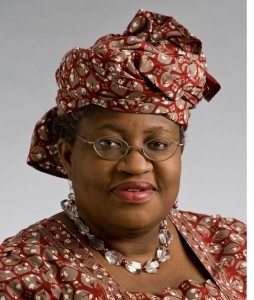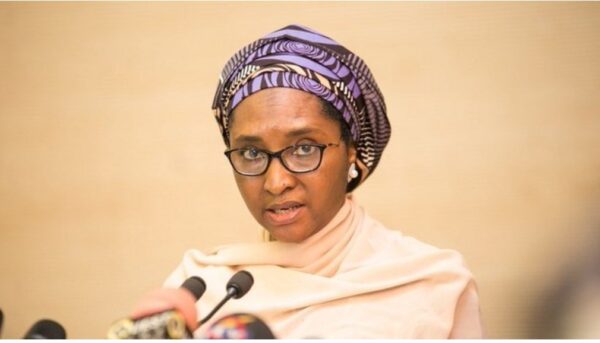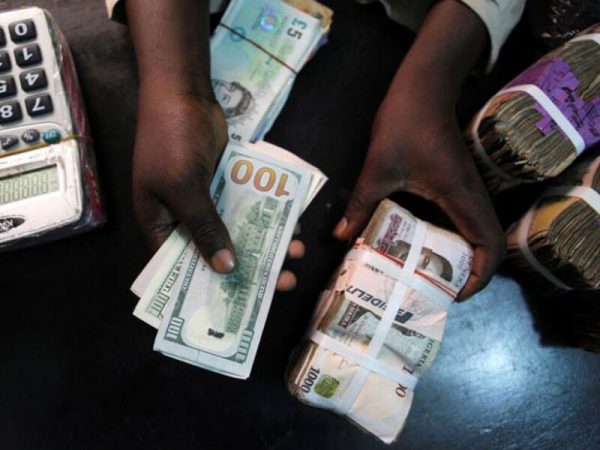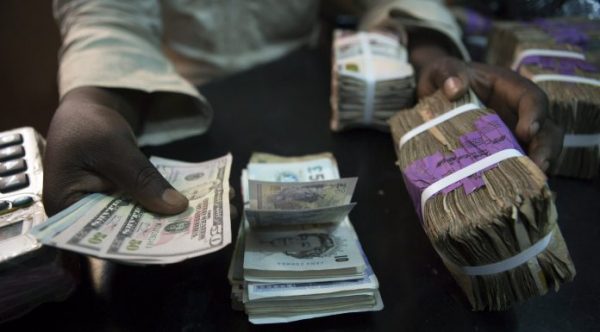Nigeria’s AfDB Trust Fund for Ebola Containment in West Africa

The Federal Government is going beyond its recent $3.5 million lifeline to help Sierra Leone, Liberia and Guinea fight the dreaded Ebola Virus Disease (EVD) as it last week expressed its plan to commit Nigeria’s Trust Fund in the African Development Bank (AfDB) in the current efforts to combat the disease in the West Africa sub-region.
The Coordinating Minister for the Economy (CME) and Minister of Finance, Dr. Ngozi Okonjo-Iweala, gave the indication at the ongoing IMF/World Bank annual meetings in Washington DC, United States of America, during a live-cast conversation on the ‘Impact of the Ebola Crisis: A Perspective from the Countries,’ as part of issues featuring at the meetings.
While enumerating the various efforts by the Nigerian government to contain the epidemic, the minister said a $3.5 million support had earlier been extended by Nigeria through the Economic Community of West African States (ECOWAS) to support worst-hit Ebola countries in the sub region.
“We quickly moved to donate money three months ago through ECOWAS (Economic Community of West African States) and President Goodluck Ebele Jonathan donated $3.5 million to the countries. We have been working through the Redeemers University and our Centres for Disease Control to train health workers and do laboratory works.
“We stand to do more and are ready to do more. I have talked to Donald Kaberuka (AFDB President) about using the Nigerian Trust Fund at the AfDB to try and move quickly and my final point is short and medium term. Short term, yes humanitarian. But medium term, marshal plan to strengthen health systems,” she said.
She, however, pointed out that winning the war against the disease would require stronger private sector support and strengthening of the health systems on a global scale.
While acknowledging the support of the Nigerian private sector as remarkable, the CME said the sector’s support helped the government to contain the scourge, noting that failure of the governments in the region and the international community to join forces in the current efforts to combat the disease could impact negatively on the sub-regional economies.
The minister stated that engaging the private sector will help in quickly mobilising the needed resources, including funds and logistics, to enable the various initiatives of the governments in other countries still battling with the crisis achieve the desired results in a timely manner.
“The lesson we learned is that quick communication and mobilisation of logistics that the President of Liberia mentioned is key. Our private sector was very active in donating money and helping with the logistics.
“The additional suggestion I want to make is that we have to bring in the private sector. They have varied expertise in logistics and we need them to come in and move the logistics in these situations.”
She called on the global community to help West Africa, particularly the affected countries, avert a potential crisis that could roll back the economic development achievements the sub-regional economies had recorded through various reforms in the recent years.
Participants at the session included the Liberian President, Ellen Johnson-Sirleaf; President of the World Bank, Jim Yong Kim; Secretary General, United Nations (UN), Ban Ki-Moon; President of the AfDB, Donald Kaberuka; and President of Guinea, Alpha Conde as well as his Sierra Leone counterpart, Ernest Bai Koroma, among others.
Okonjo-Iweala had during a presentation she made at a forum organised by the Atlantic Council Africa Centre in collaboration with the Thompson Reuters Foundation on Wednesday challenged the global community to collectively combat the Ebola virus scourge, pointing out that from current developments, the disease knows no borders.
She had declared that a passive disposition by the international community on the outbreak of the disease in West Africa would do no one any good.








